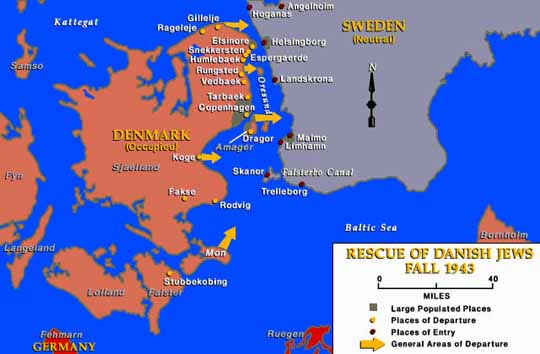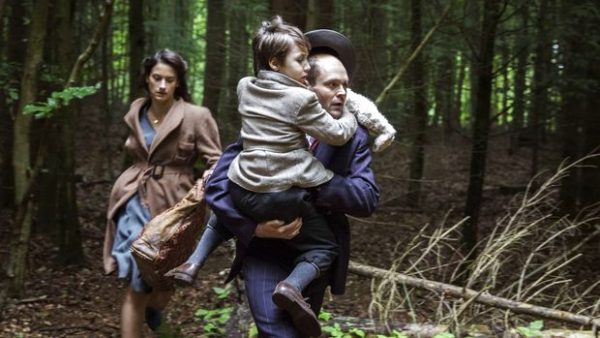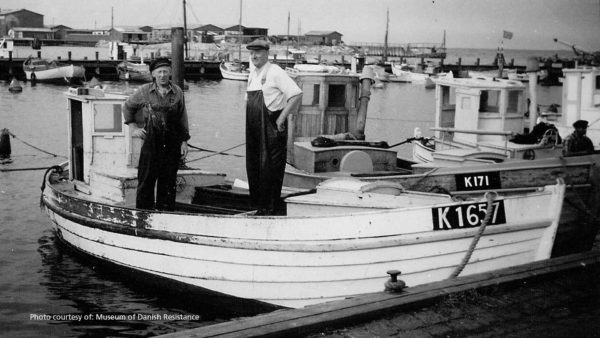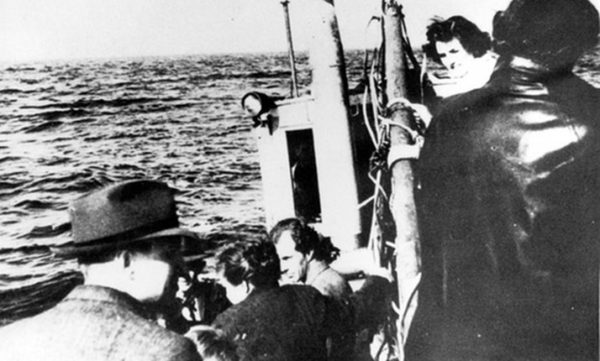There are two shining beacons in the bleak darkness of the Holocaust.
Amid a miasma of cruelty and violence, a pair of Nazi-occupied countries shielded Jews.
Bulgaria, an ally of Germany, passed antisemitic laws and sent 11,000 foreign Jews from Macedonia and Thrace to Nazi extermination camps. Bulgaria, however, resisted German pressure t0 deport its 50,000 Jewish citizens.

Denmark, a model German protectorate, protected its Jews and facilitated their flight by sea to a safe haven in neutral Sweden in the autumn of 1943. Nicolo Donato’s somber feature film, Across the Waters, examines this unique episode mainly through the frightful experiences of a Jewish family. The movie kicks off the Toronto Jewish Film Foundation’s 14th annual Chai Tea movie series, which starts on October 22.
Scheduled to be screened at the Cineplex Cinemas Express Walk theatre at 1 p.m. and 4 p.m., it begins on an upbeat note. Arne Itkin (David Dencik), a Jewish musician, is happily strumming his guitar at a jazz club in Copenhagen when his wife, Miriam (Danica Curcic), bursts in with forboding news.
“They’re coming for us,” she exclaims, referring to an imminent roundup of Jews by German soldiers.
Arne is skeptical. It’s a rumor, he insists. Besides, he argues, Denmark is not Poland, where three million Jews would perish.

With the Germans having launched their operation, the Itkins gather their personal possessions, barely eluding enemy troops as they converge noisily on Jewish homes. Arne promises his wife and six-year-old son, Jacob, they will all make it to Sweden.
The scene shifts to a group of Danish fishermen, who will play a crucial role in the transportation of Denmark’s entire Jewish population to neighboring Sweden, only about 10 kilometers across the Oresund strait. “But what’s in it for us?” asks one fisherman, summing up the mercenary mood of the day.

The Itkins press on toward a port from which they can escape to Sweden. En route, they stop at a doctor’s office to treat Jacob’s cold. The doctor, a decent fellow, advises them to go to the town of Gilleleje, where few Germans are supposedly found.
Donato, whose grandfather ferried Jews to Sweden, fills his film with heavies and heroes.
An unlikely hero turns out to be a simple German soldier who decides not to arrest the Itkins after finding them cowering in a hut in the forest.
At first, the fishermen are portrayed as cold-hearted. One demands a girl’s gold necklace. Another wants “cash up front.” A third blackmails a Jewish woman into performing sex with him. It’s clear that the fishermen are taking advantage of the situation. The extortion stops when a member of the underground warns them they must help even penniless Jews. Later, the resistance movement announces its intention to cover the expense of ferrying Jews to Sweden.
A local pastor also acquits himself nobly. Delivering an impassioned sermon in his church, he tells congregants that the persecution of Jews runs counter to the Christian precepts of charity and justice. “We will fight for the rights of our Jews,” he declares.
Gilleleje’s police chief does the right thing too when he rejects a request from a German commander to undertake a search of Jews in his town.

Judging by the successful outcome of the sealift to Sweden, righteous Danes vastly outnumbered the scoundrels and collaborators in their midst. More than 7,000 Danish Jews, or 95 percent of the Jewish population, reached the safety of Sweden. Across the Waters celebrates this humanitarian achievement in a spare Scandinavian style.